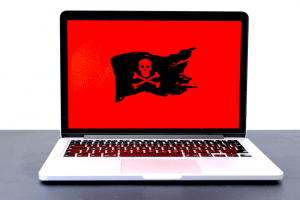Homeowners in the vacation rental industry generally implement safety measures to protect themselves and the guest alike. Such measures include having insurance, damage deposits, rental agreements, house rules, and-so-forth.
If you’ve got your whole vacation rental business protected externally, what about the internal aspect? We’re not talking about the inside of your property, but your computer. Have you ever thought about how you should protect your guests’ data and your business online?
Whether it’s a booking or an inquiry, guests give you personal information and these details have to be collected securely. As a vacation rental business owner, you have an obligation to protect all guest data. In addition to safeguarding the data, you also need to protect your system and applications.
Possible Cyber Threats:
Last year 62% of businesses experienced phishing spams and cyber attacks. As we live in the digital era, it’s important now more than ever to be on the lookout and be aware of cyber threats that can have a negative impact on your business.

First, we’re going to take a look at some of the possible online threats out there and see what your business is fighting against:
1. Malware
Malware is any software that was intentionally designed to harm systems. Your device may be infected through various sources from malicious networks to phishing emails. Of all kinds of malware out there in the wild, ones that seize data are the most harmful to vacation rental owners or managers. The threat actors may use the information to demand ransom from the owners in exchange for the safe return of their data.
2. Phishing Scams
Spam is a form of attack that relies strictly on deception. They deceive their victims with false legitimacy and pretend to be a valid form of communication from a channel they trust. Spam often leads to adverse effects like malware, loss of data and finances and identity theft of a company or an individual. In essence, spams are the cornerstone of a successful scam.
3. Denial of Service Attack
A denial of service attack occurs when a threat actor prevents legitimate users from accessing a particular system, like a business website, by flooding it with invalid requests. This leads to financial loss to the victim, as it denies access to legitimate customers. This is usually an attack targeted at larger companies or organizations with greater traffic.
How to protect your data and improve security?
Data protection is also obligatory by law in most countries and is fundamental for any company, no matter the size. Now you’re aware of the threats, you need to ensure you protect your business online and avoid any potential security threats.
Here are eight important measures you should put in place:
1. Install a Firewall
A firewall is either a physical or virtual barricade against hackers, malware and other scammers. It is essentially your first line of defense against online threats. The information transferred through this barrier is filtered, analyzed and regulated to prevent any malicious activity passing through your system.

Once you’ve installed a firewall, ensure to constantly update it as new threats arise daily. This will also protect your website from any emerging damage. Lodgify as a platform is behind a state-of-the-art firewall and any websites created on it are protected behind the same technology.
2. Add an Antivirus Software
An anti-virus software is paramount in securing your devices from worms, viruses and other kinds of malware. Apart from that, modern antiviruses are capable of analyzing abnormal behavior within the system, and can help detect if the system has been compromised.
Installing an antivirus and having a firewall in place will prevent most malwares from penetrating vulnerable systems. Routinely updating the virus signatures on the antivirus software helps prevent attacks from even the most modern malwares.
3. Have Strong Passwords

It’s best to avoid using the same password across all your accounts and softwares. Make your passwords unique and distinct. Create secure passwords resulting from a mixture of numbers, letters, lowercases, uppercases, and special characters.
For multi-user accounts, don’t create a single user with one password. Create individual users, so you can also give them access only to those areas you want them to use. And of course, make sure all users adopt discrete passwords too.
4. Be Wary of Email Scams
If an email looks suspicious or you have doubts about the email itself, do not click on any links and block the address straight away. If it comes from a well-known organization or company, contact them to see if was provided by them or it’s fake.
Remember that nowadays no company will email you to ask for your payment details. Therefore if you ever receive an email asking for your credit card details, assume it’s spam.
A spam filter is an excellent way to detect and quarantine spam emails. For companies with a larger number of employees, phishing training is important to help individuals understand how to distinguish spam emails from legitimate ones.
You can also try this quick tip: check the URL of any link sent to you by email. The scammer may have copied the URL of another web page and added a letter difference. Cross-check it with the real URL on the actual site. If they are different, it’s spam.
5. Offer a Secure Payment Method
Credit cards are one of the most secure payment methods available for vacation rental businesses. Credit cards offer strong fraud protection and it’s easy to get charges reversed. Therefore it’s highly advisable to allow this payment type in your rental business.

What’s more, it’s also the most preferred payment method by guests. Being able to pay by credit card is a great way for guests to keep their payments safe and protect them against fraud.
6. Monitor Connections on your Computer
Malware and viruses are malicious pieces of software that can be found anywhere from USB devices to external hard drives and smartphones. So be vary of external devices that connect to your computer and ensure that they are clean from any viruses.

And this includes wired and wireless networks that you may connect to. By connecting to unknown networks, you are more susceptible to attacks and are more at risk of having your data stolen.
7. Have a Strict Privacy Policy
Make it as clear as possible to your guests how you intend to use their personal information: why are collecting their data and for what purpose. Provide a strict privacy policy on your website and add a consent box in which guests have to tick to show they agree with it. If you intend on sending marketing emails, include a consent form for this too.
It’s extremely important to let them know that their data won’t be passed on to third party companies. Likewise, don’t ask for more information than you need. The more information you have in your system, the worse the damage could be, if something were to happen that is.
Furthermore, providing a privacy policy will give guests the confidence and trust when booking your rental.
8. Have SSL Encryption Embedded on your Site
Any web page that has HTTPS in the URL or, in other words, SSL encryption, means that it is safe to use it.
It’s becoming increasingly important to use SSL encryption on any website that gathers and transmits customer information for it to remain private and secure. So important, that Google even stopped showing up websites that don’t have an SSL certificate in 2017.
This also acts as a further safety measure for guests, as they will feel more secure when making an online payment or booking on your website. They will know that their personal data will not end up in the wrong hands. In addition, adding an SSL certificate to your website will also improve your SEO.
Why is data protection so important?
Nowadays, it is increasingly common that data is stolen and sold on the dark web. Therefore, all businesses need to take more precautions when it comes to handling personal data. Any breach of data can lead to large fines and legal implications.
Here are three of the most important regulations to be aware of by law:
1. PCI DSS
PCI DSS (Payment Card Industry Data Security) is a security standard for all businesses that accept any card payments, as these carry sensitive customer information. According to PCI DSS standards, all payment information must be stored in a secure environment.
To ensure that guests’ credit card information are safe, your vacation rental business must comply with PCI DSS. Lodgify is compliant with PCI DSS so your guests’ data is automatically protected. By creating a website for your vacation rental on Lodgify, all guest payments are unattainable, giving you peace of mind.
2. Strong Customer Authentication
Strong Customer Authentication (SCA) is a recent European regulatory requirement that aims to reduce fraud and make online payments more secure by introducing an extra level of authentication at the checkout. This makes it harder for fraudulent transactions to take place.

By providing this on your vacation rental website, guests will be further protected as they will have additional security checks when paying for their stay.
3. GDPR
The General Data Protection Regulation is a regulation that came out in May 2018. Any company that manages customer data has to comply with it. This means, as a vacation rental owner, you must adapt to this regulation and keep all guest data confidential.
GDPR aims to establish a single law for privacy information across Europe to protect the privacy of European Union citizens and redefine how organizations deal with information privacy. Under the new data protection laws, people have the “right to be forgotten.” Therefore if a guest requests that their data be deleted, the host is obliged by law to delete the data from all devices.

If there is a breach of data, or the data has been leaked, homeowners are required by law to inform the guests. Depending on the severity, they can be fined.
Similar to the privacy policy, it’s advised to address GDPR regulations on your website so that guests are aware of their rights.
Note: GDPR is not applicable in the US. However, if you have any guests from the EU, you must comply with it. You also need to make sure your system is 3DS secure.
All these measures are essential to protect not only your vacation rental business online but also your guests’ data. It’s important to keep up to date with laws and regulations in your state and country and ensure that nothing is ever compromised.


